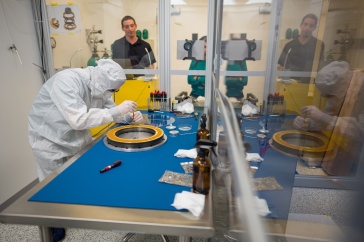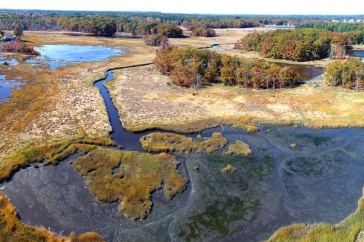
Fourteen teams with members representing more than 100 UNH faculty and staff from across the university, as well as 20 external partners, have received $425,000 Collaborative Research Excellence (CoRE) funding. CoRE, an initiative of the Office of the Senior Vice Provost for Research (OSVPR), supports interdisciplinary and collaborative efforts driven by UNH researchers addressing local, regional and world issues.
This year’s competition saw a 74-percent increase in applications, with proposals seeking over $1.7 million in funding.
“The number and quality of submissions demonstrates the innovative approaches that UNH faculty and staff use to solve the most complex problems facing our society,” says Jan Nisbet, senior vice provost for research at UNH. “We are pleased to support these collaborations and look forward to the scientific and societal impacts of their efforts.”
FY2019 projects fall into three categories:
Supporting Large, Complex Proposal Development provides funding of up to $100,000 for one year to be matched by a minimum of 25-percent non-OSVPR funds to shape and position major, interdisciplinary external grants with an annual budget greater than or equal to $3.5 million for success.
- Implementing a UNH Strategy for Arctic Research and Scholarship (Leads: Larry Mayer, Katharine Duderstadt, Jack Dibb, Ruth Varner and Cameron Wake
Pilot Research Projects seed funds of up to $30,000 per project for one year for collaborative research projects with strong potential to attract future funding from external sources, and/or with outstanding commercial potential.
- Development of a High-Throughput Fish Authentication Technology to Reduce Seafood Mislabeling (Leads: John Bucci and Semra Aytur)
- Establishment of a Unique Coastal Field Site for Marine Boundary Layer Characterization (Leads: Glenn Shwaery and Meg Greenslade)
- Quantifying Kinematic Fidelity of Therapeutic Exercise using Wearable Sensors: Machine Learning Meets Therapeutic Service Delivery (Leads: Momotaz Begum and Dain LaRoche)
- Regional Analytical Center for Emerging Contaminants and their Metabolites (Leads: Kevin Gardner and Paula Mouser)
- Structure and Function of Brain-Specific Calcium Channel Splice Variants (Leads: Arturo Andrade and Krisztina Varga)
- Surveying the Anthropocene through Geochemical, Genetic and Geospatial Analyses (SAG3A) (Leads: Meghan Howey and Michael Palace)
- The Neurobiology of Acceptance and Commitment Therapy in Treating Chronic Pain (Leads: Don Robin and Semra Aytur)
- TIGERS II: Transformative Investigations of Geospatial, Environmental and Social Sciences (Leads: Jeannie Sowers and Michael Palace)
- Watershed Informatics: Integrating Big Data to Understand Watersheds in a Changing World (Leads: Adam Wymore and Laura Dietz)
Interdisciplinary Working Groups support groups of faculty with up to $15,000 for projects lasting one year to convene around research topic areas to build awareness and relationships across disciplines, allow for cross-fertilization of ideas, identify potential collaborative research opportunities and provide a venue for finding partners.
- Connecting STEM Education and Outreach Across UNH (Leads: Ruth Varner and Carmela Amato-Wierda)
- Interdisciplinary Working Group on Integrated Assessment and Research of Wildlife Disease, Health and Ecology (Leads: David Needle and Cheryl Andam)
- UNH Behavioral Health Initiative Research Development Team (Leads: JoAnne Malloy and Don Robin)
- UNH Interdisciplinary Safe and Sustainable Aquaculture & Seafood Production Working Group (Leads: Erik Chapman and Stephen Jones)
The CoRE initiative launched in FY18. In its first year, 22 interdisciplinary project teams received awards. Those projects have reported a breadth of research and scholarship outputs that include more than $12 million in external grant proposal submissions, $2.9 million in new awards, numerous manuscript submissions to peer-reviewed journals and conferences, workshops and presentations that have engaged hundreds of academic, community and industry partners.
For more information on CoRE, contact Mark Milutinovich, director of large center development, and Maria Emanuel, large center development and broader impacts, or visit the CoRE website.
-
Written By:
Maria Emanuel | CoRE | maria.emanuel@unh.edu



















































